Articles Archive
See all articles and discover more interesting topics!
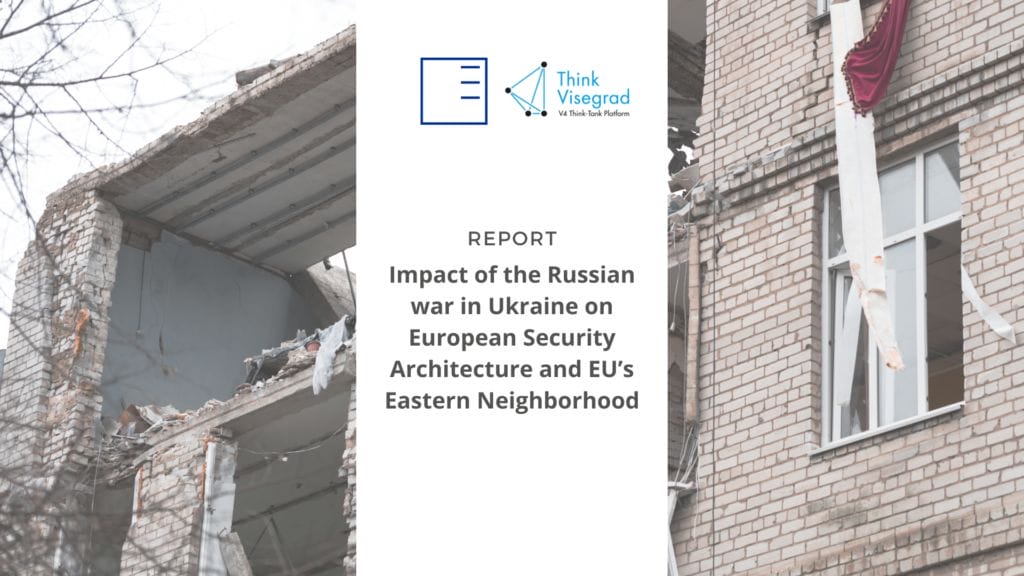
Report: Impact of the Russian war in Ukraine on European Security Architecture and EU’s Eastern Neighborhood
On October 25th, EUROPEUM’s Brussels Office under the representation of Think Visegrad Brussels and in cooperation with Fondation Robert Schuman organized an expert discussion titled “Impact of the Russian War in Ukraine on European Security Architecture and EU’s Eastern Neighborhood”. This discussion, which was held under the Chatham House rules, gathered 19 experts from think-tanks, EU institutions, NATO and diplomats from EU Member states.

Policy Paper | 2024 and Beyond: How to Future-proof the Transatlantic Alliance
Our researcher Danielle Piatkiewicz contributed to an analysis looking at the latest obstacles facing transatlantic security, particularly against the backdrop of Russia's war against Ukraine. The focus is on the need to address geopolitical challenges while pursuing strategic independence on economic and energy issues, all while maintaining the common democratic principles that bind these allies together. The document also anticipates the obstacles ahead in 2024, including a significant election year, and the need for the transatlantic relationship to strengthen its resolve for the future.

Report: EVs, subsidies and the future of CEE industry
On October 24, EUROPEUM’s Brussels Office under the representation of Think Visegrad Brussels and in cooperation with OSW organized an expert discussion titled “EVs, subsidies and the future of CEE Industry”. This discussion gathered 16 experts from think-tanks, academia, and experts from the European institutions. This discussion was held under the Chatham House rules.
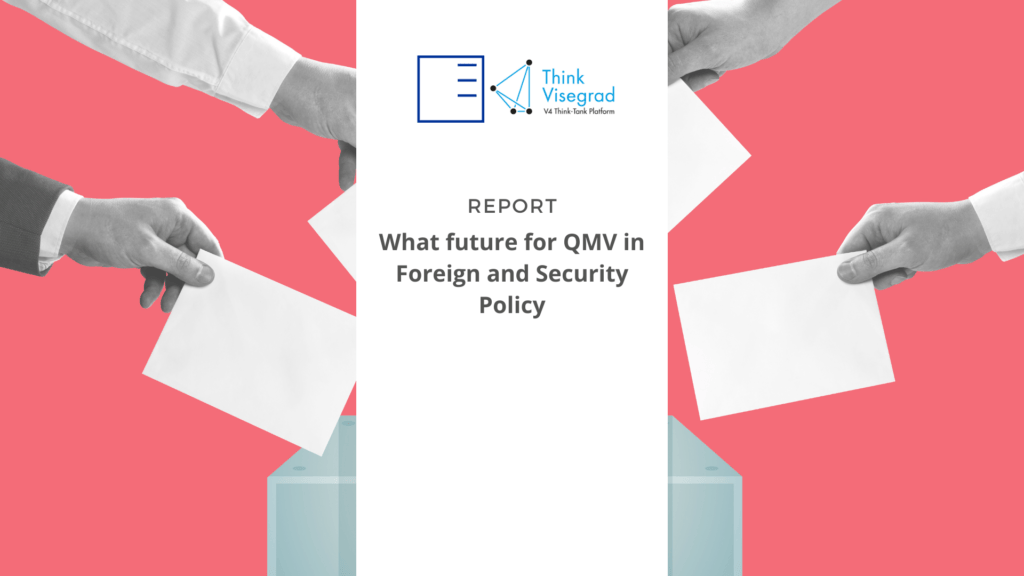
REPORT | What future for QMV in Foreign and Security Policy?
The debate focused on the possible move to qualified majority voting in the EU's Foreign and Security Policy. The participants in the debate discussed the possible negative and positive aspects of the decision. The debate covered topics such as the fear of over-voting as a possible aspect of division within the Union or the ineffectiveness of the current consensus approach.
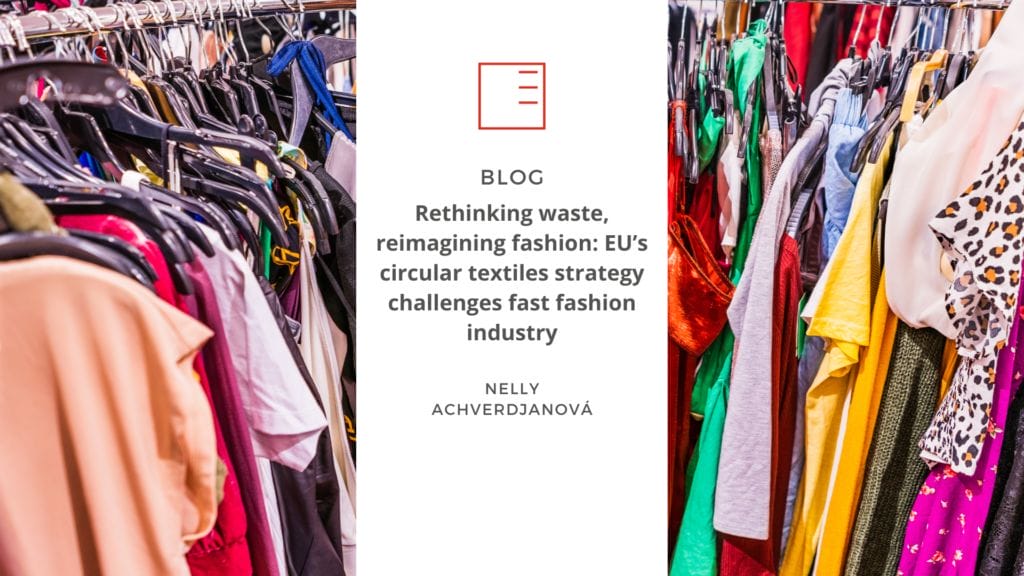
BLOG | Rethinking waste, reimagining fashion: EU’s circular textiles strategy challenges fast fashion industry
A number of industries, including textiles, are now facing an increasing emphasis on sustainability. It is characterised mainly by one-off trends, which are linked to the frantic pace of the entire textile industry. The EU's Circular Textiles Strategy can be seen as a hope to address the situation. You can find out more about it in the blog written by our intern Nelly Achverdjanová.
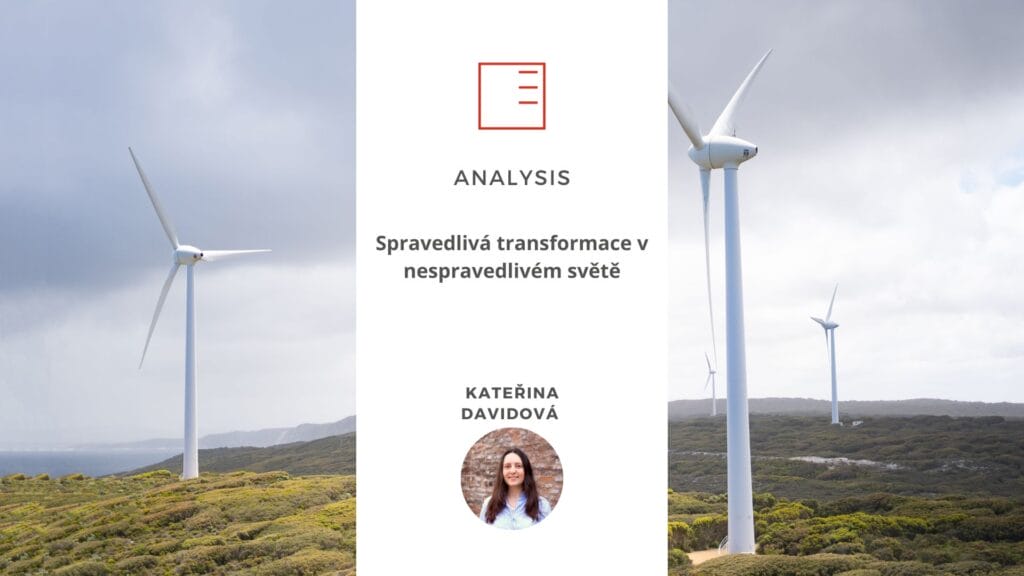
Analysis: Just transformation in an unjust world
In order for the green transformation to be successful, its social impact must also be addressed. But how do you achieve both carbon neutrality and social reconciliation in an unequal system? Our senior researcher Kateřina Davidová answers this question in her analysis for the journal International Politics.
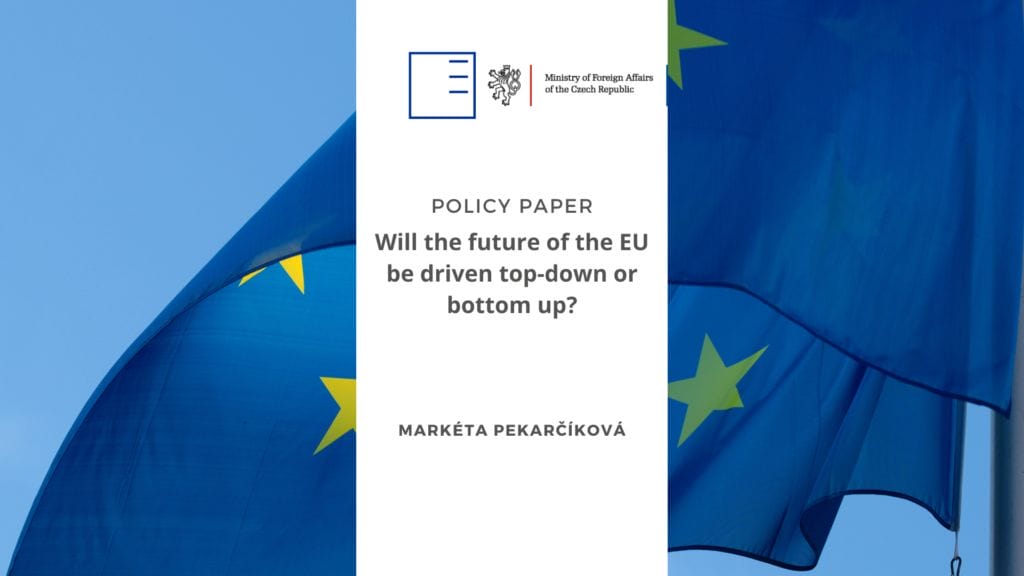
Policy Paper | Will the future of the EU be driven top-down or bottom up?
Read the article by Markéta Pekarčíková, who has written a policy paper on possible approaches and proposals that the European Union could follow or at least be inspired by. It provides a theoretical perspective on the future of the European Union as perceived by the previous European Commission under the leadership of Jean-Claude Juncker. The EU27 was to decide its future by 2025.
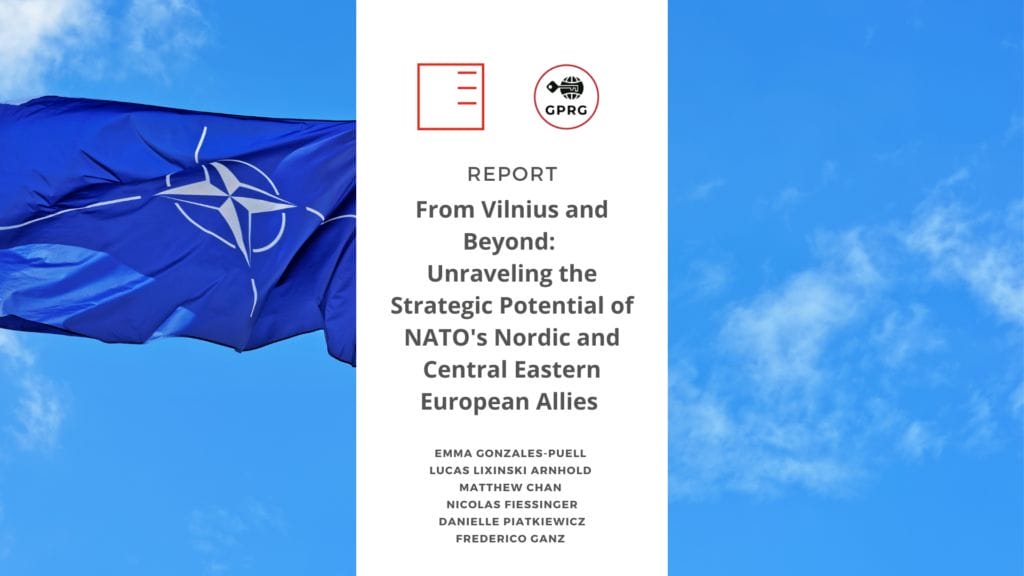
Report | From Vilnius and Beyond: Unraveling the Strategic Potential of NATO's Nordic and Central Eastern European Allies
Our Research Fellow Danielle Piatkiewicz co-edited a report made in partnership with the Global Policy Research Group. In an era marked by shifting geopolitical landscapes, the Nordic and Central/Eastern European countries hold key strategic positions within the North Atlantic Treaty Organization (NATO). Following the recently concluded NATO Summit in Vilnius, it's clear that the Alliance stands at a crossroads. The summit underscored the importance of member nations harmonizing their aspirations, capabilities, and strategic priorities. The report delves into both past and current policy initiatives to offer insights into the legacy of cooperation and strategic positioning of these nations.
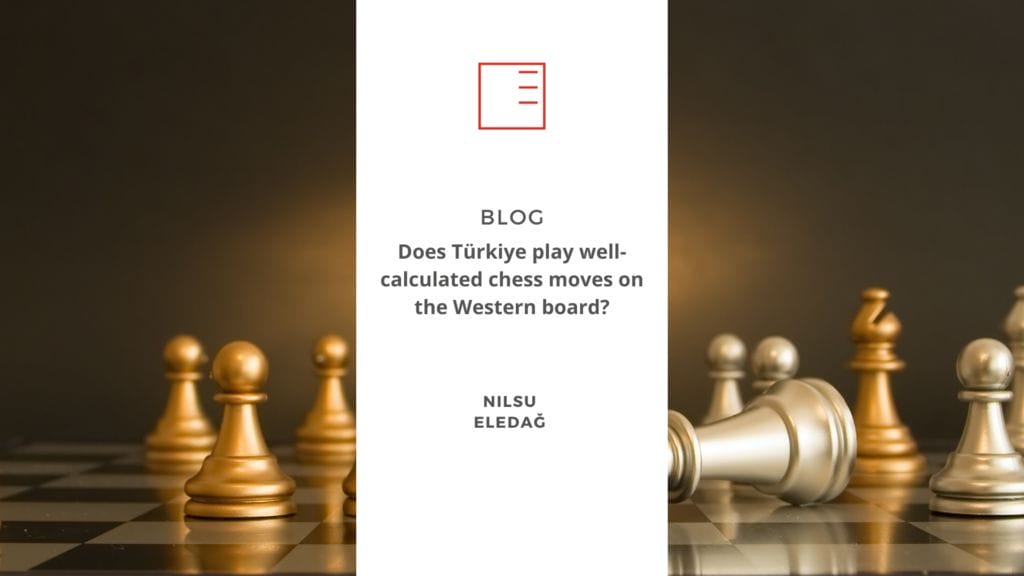
BLOG | Does Türkiye play well-calculated chess moves on the Western board?
Nilsu Eledağ has written a blog about Türkiye's role in determining Sweden's NATO membership and concerns about terrorism and anti-Islamist movements. Türkiye took a slight turn in foreign policy and now plays a closer game with NATO allies. There could be two reasons behind why Türkiye chose to shift towards the West. Find out more in Eledağs blog.
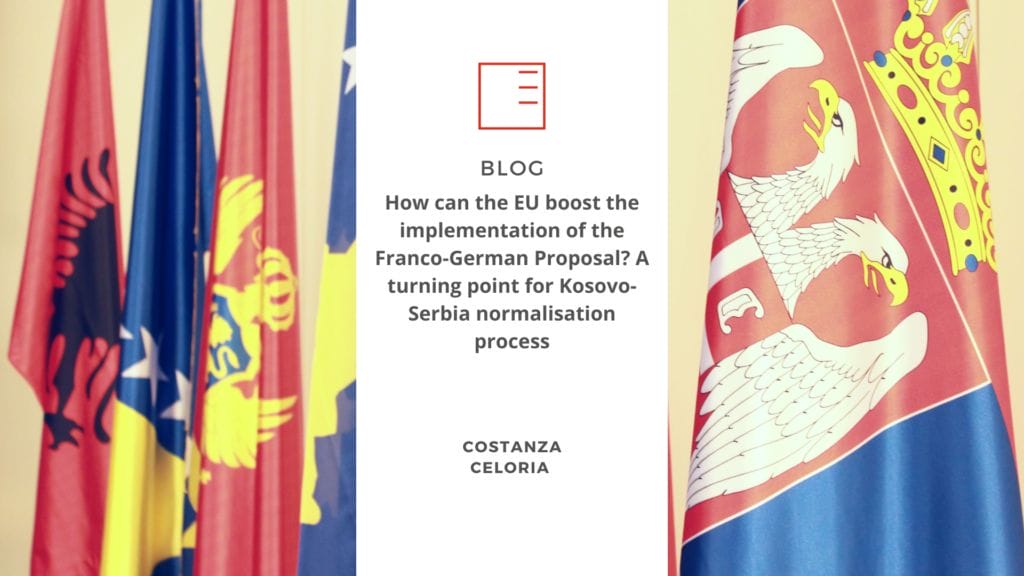
BLOG | How can the EU boost the implementation of the Franco-German Proposal? A turning point for Kosovo-Serbia normalisation process
Serbia's refusal to recognise Kosovo, which unilaterally declared independence in 2008, is at the root of many problems within the region of Western Balkan. It hinders both countries’ EU membership paths, creates destabilisation in the Balkans, as visible in the recent unrest in northern Kosovo, and hinders regional economic cooperation. Writes our intern from our Brussel's office Costanza Celoria.
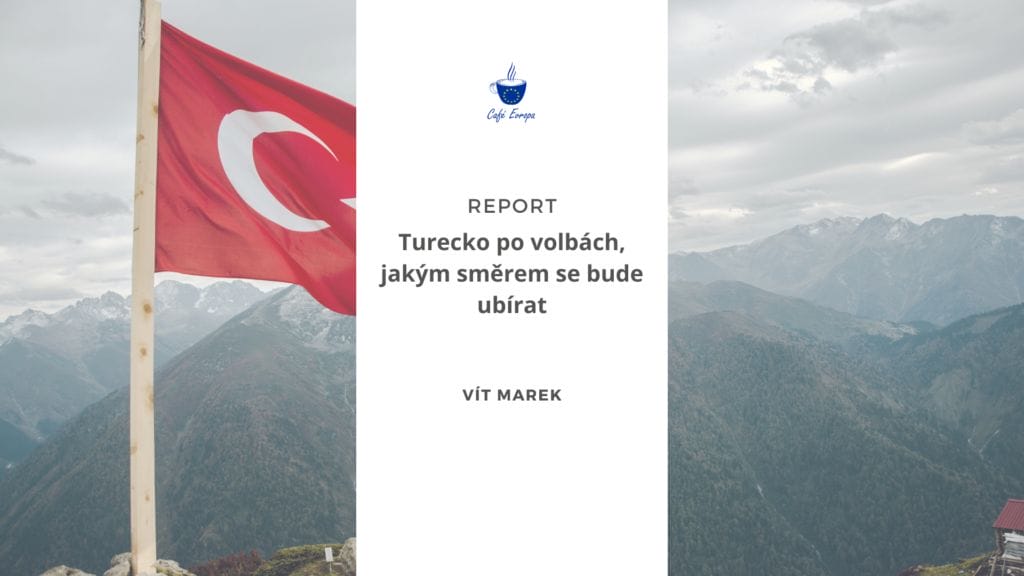
Report | Café Evropa: Turkey after the elections, what direction it will take
On Wednesday, June 7, a debate took place as part of the Café Evropa cycle, on the topic: "Turkey after the elections, which direction will it go?". The invitation to the debate was accepted by Lucia Najšlová, political scientist and author of the book Turkey and the EU: The Politics of Belonging, as well as by Deník N journalist Dominika Píhová and Břetislav Tureček, head of the Center for Middle East Studies at the Metropolitan University in Prague. The debate was moderated by Žiga Faktor, the head of the Brussels office of the EUROPEUM Institute for European Policy.
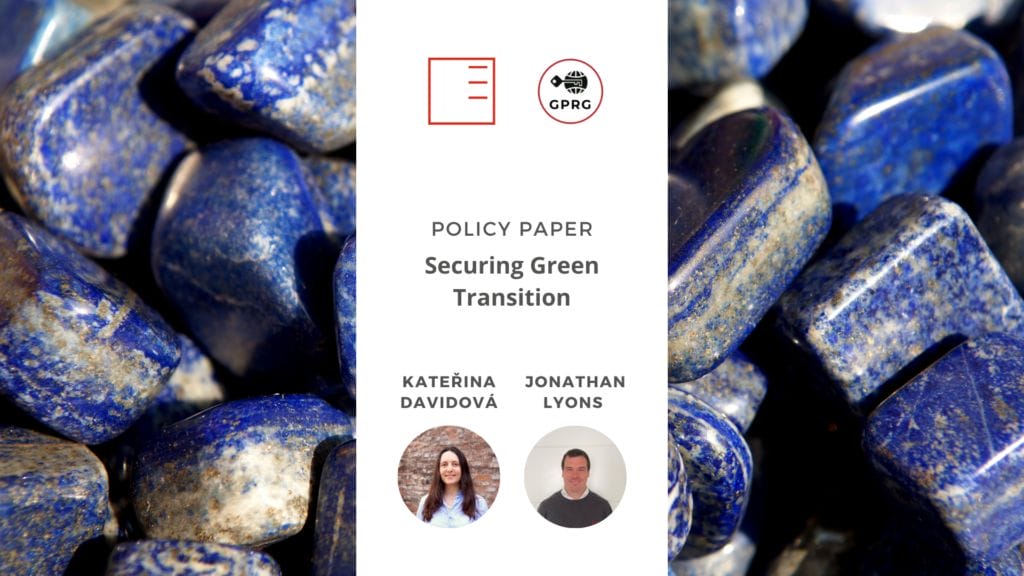
Policy Paper | Securing Green Transition
Our Senior Research Fellow, Kateřina Davidová and Research Associate, Jonathan Lyons, in partnership with the Global Policy Research Group, have collaborated on a study that examines the secure and sustainable supply of critical raw materials (CRMs) that are key to green technologies. The study recommends a strategy for Sweden and the Czech Republic to ensure sustainable supply chains to help the transition to green technologies.